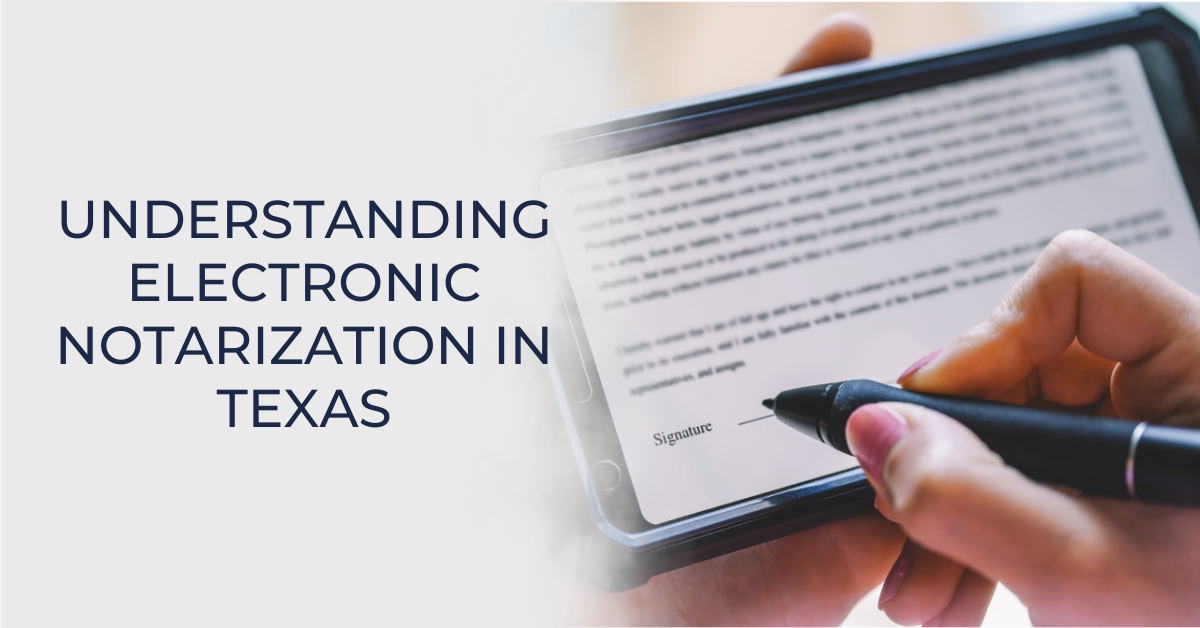Notary Public Underwriters Blog
Understanding Electronic Notarization in Texas
- Details
- Published: April 14, 2025

As more transactions go digital, notaries are adapting through the use of electronic notarizations (also known as “e-notarizations”). In Texas, the law allows commissioned notaries to perform electronic notarizations for physically present individuals—provided certain requirements are met.
What Is Electronic Notarization?
Electronic notarization involves the use of electronic tools, electronic documents, and electronic signatures instead of tangible paper, ink pens, and tangible notary stamps and embossers. It's important to note that the signer must be physically present with the notary during the entire notarial act. This is not remote online notarization (RON), which allows for two-way audio-video conferencing.
Who Can Perform Electronic Notarizations in Texas?
Any Texas notary public may perform electronic notarizations without needing additional registration or certification.
📚 Reference:
Texas Government Code §406.026
Texas Secretary of State FAQs
What Term Is Used for This Practice?
The Texas Government Code refers to this practice simply as “electronic notarization.”
Are There Any Document Limitations?
While electronic notarization can be applied broadly, some situations and documents may still require a traditional (ink-and-paper) notarization. Always consult Texas notary laws to verify.
Benefits of Electronic Notarization
Electronic notarization offers several advantages:
🕒 Faster turnaround and easier sharing of documents
🔒 Enhanced security and tamper-evident features
🧾 A more comprehensive audit trail than traditional notarizations
📘 Integrated electronic notary journals (a common feature with many platforms)
Texas makes it easy for notaries to step into the digital space. However, understanding the legal nuances is key. Before you begin performing electronic notarizations, take time to read through the relevant statutes and guidelines.
Related Article(s)
How to Become a Notary in Texas
Notary FAQs: Essential Answers for Everyday Scenarios
Can I Notarize a Document in a Language I Don’t Understand?
What to Do When Names Don’t Match on the ID and Document
How to Assess Signer Awareness or Coercion
Does a Notary Need to See the Entire Document When Notarizing?
Top Ten Mistakes That Notaries Make
Questions for Notaries to Ask Before Scheduling an Appointment With a Client
